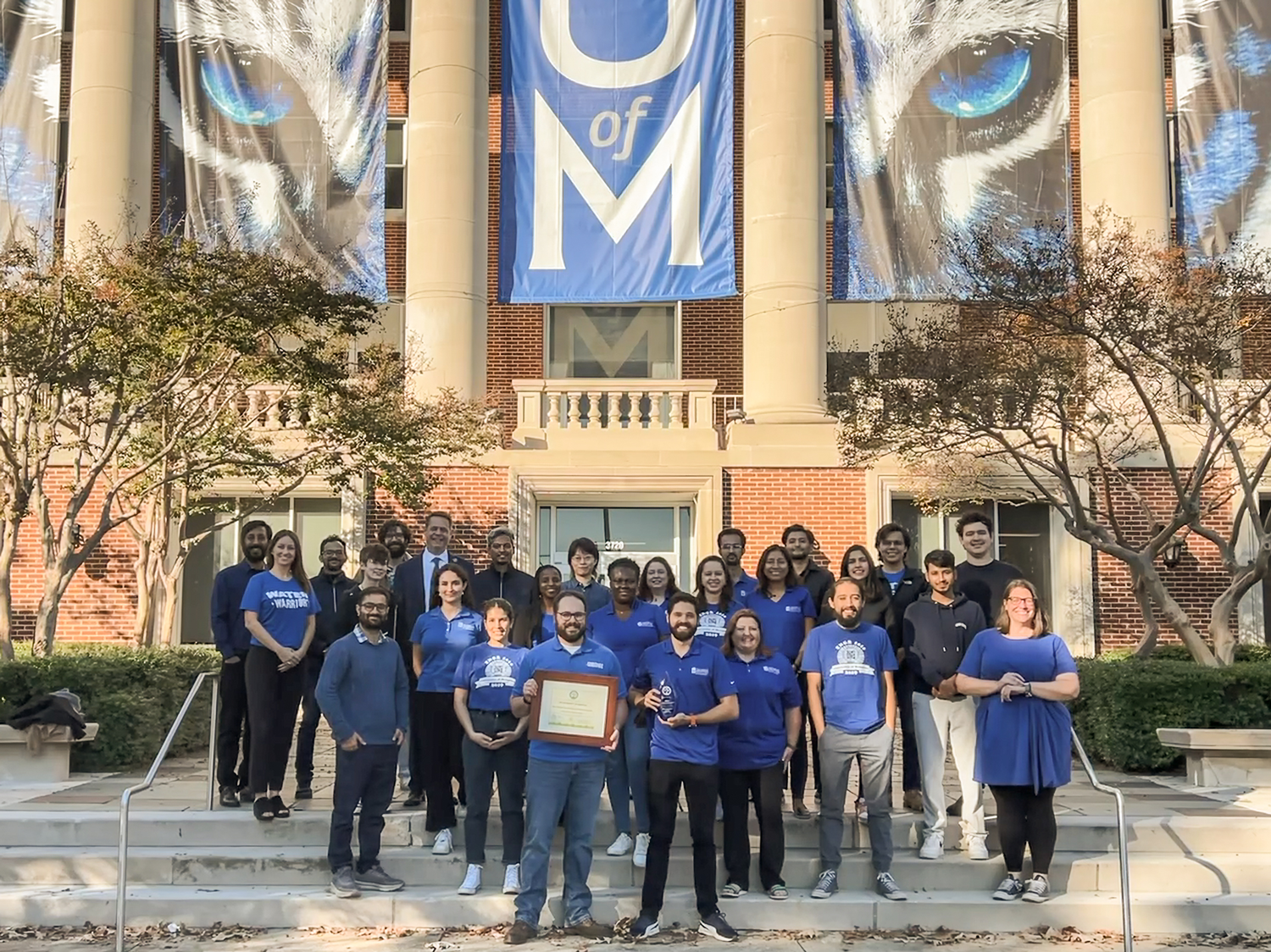mediaroom
CAESER Earns Prestigious Governor’s Award for Aquifer Study
Multidisciplinary Research Center Recognized for Environmental Stewardship
Nov. 25, 2024 — The Center for Applied Earth Science and Engineering Research (CAESER) housed at the University of Memphis recently received the prestigious Governor's Environmental Stewardship Award in Water Quality, recognized for its work during a 5-year study on the Memphis aquifer.
Funded through Memphis Light, Gas & Water, the 2018-2023 study and its groundbreaking results provided a massive shift in understanding of the aquifer.
 Tennessee Governor Bill Lee, alongside Tennessee Department of Environment and Conservation
(TDEC) Commissioner David Salyers presented CAESER with the honor, which recognizes
exceptional voluntary actions that improve or protect the environment and natural
resources with projects or initiatives not required by law or regulation.
Tennessee Governor Bill Lee, alongside Tennessee Department of Environment and Conservation
(TDEC) Commissioner David Salyers presented CAESER with the honor, which recognizes
exceptional voluntary actions that improve or protect the environment and natural
resources with projects or initiatives not required by law or regulation.
"These organizations go above and beyond what is required to protect our natural resources, and we are grateful for their dedication," Lee said. "Tennessee is recognized around the world for its beauty and natural treasures, and organizations like these play a significant role in securing such a prestigious position."
CAESER's five-year study aimed to deepen our understanding of the complex aquifer system providing Memphis and Shelby County residents with drinking water. It also fueled direct education outreach to over 10,000 West Tennesseans on ways they can individually help protect this critical water resource.
The Memphis aquifer is an essential natural resource to West Tennessee, with Shelby County being its largest producer since it began drawing water from the aquifer in 1886. The aquifer was once believed to contain pristine 2,000-3,000-year-old water safeguarded by a complete clay layer.
However, this study initiated by Memphians and residents in unincorporated Shelby County and led by CAESER found that the protective clay has naturally occurring holes or breaches. This gives the protective clay layer more of a Swiss cheese appearance. These results have enormous implications for Memphis, Shelby County and West Tennessee.
"Tennessee continues to be a place where we can grow our economy and protect our natural
resources at the same time," said Salyers. "A big part of what makes Tennessee special
is the individual contributions made by our citizens that help keep Tennessee beautiful."
CAESER remains committed to its mission of strengthening communities by improving
environmental and social conditions through collaboration and research with its partners.
For more information about CAESER and its initiatives, visit caeser.memphis.edu.
####
MEDIA CONTACT:
Jennifer Godwin
Director of Media and Public Relations
jennifer.godwin@memphis.edu
(O) 901.678.4822 (M) 501.529.7482
